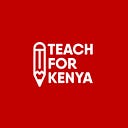Teach for Kenya Community Visit to Mukuru kwa Njenga
By: Clara Omol
Sources : Dianarose Njui ( Leadership and Development Officer, Teach for Kenya) , Collins Ngetich and George Ngala ( Teach for Kenya Fellows)
As Coretta Scott King said, ‘the greatness of a community is most accurately measured by the compassionate actions of its members.’ On 12th October 2020, Teach for Kenya had a community visit in the informal settlements of Mukuru kwa Njenga, in the East of Nairobi, Embakasi Constituency. This was to immerse our Teach for Kenya Fellows into the community by making them more aware of the environment in which they will be agents of change and get to see first hand, the challenges of inequality in education in Kenya.
The yearning of our Fellows reflected on their faces as they began their journey to the community. Most of them had not yet had the experience of being in the low income areas before.
Being my first time in a slum, I found the school set up beyond what I thought and generally it was a lot to take in, said Collins Ngetich, Teach for Kenya Fellow.
The warm and homely welcome from the community members filled the air. Our Teach for Kenya Team and Fellows were amazed by the excitement from the children and teachers in the schools who without hesitation interacted with them and openly shared their achievements and opinions on the challenges faced in the schooling system. One of the achievements shared by the directors at the school was the outstanding performance by the students in the Kenya Certificate of Primary Education examinations. The students had the opportunity to successfully transition into secondary schools and from the students interactions with the Teach for Kenya team, they showed enthusiasm and zeal to become successful in future. For instance, two students from Victory Primary School, Ackline, a class 7 student is aspiring to be a doctor, while Peter, a class four student wants to be an Engineer.
According to findings by the Teach for Kenya Team and Fellows, Some of the the challenges highlighted were:
· Teacher turnover : The schools in the community are under staffed where by, some of the teachers moved from from one school to another in search for greener pastures.
· Noncommittal parents towards the well-being of children’s education: This is where some of the parents opt not to turn up for important school meetings or prefer to attend at a different time.
· Insufficient learning resources and poor classroom infrastructure: The schools have limited and outdated textbooks and stationery.
· Student absenteeism: This is majorly caused by hunger, insufficient water, rain water leaking from iron sheet roofs hence flooded classrooms and poor sanitation.
· Language barrier : Some of the students spoke their mother tongue but could not speak English and Kiswahili.
· The challenge of fee payment : Some of the students are unable to enroll in schools due to lack of school fees and opt to join their parents and guardians in selling sand in order to fend for their families.
Despite the challenges, the students, teachers and members of the community expressed their hope for a better future. One of the students said,
Nothing will stop me from achieving my dreams!
The Teach for Kenya team had an insightful and eye opening experience during the community visit. We reflected on ways in which we can help bring the best out of the Mukuru kwa Njenga community through providing quality teacher leaders, who are committed to positive mind set transformations and will work with the stakeholders to share an inspiring narrative of the Mukuru kwa Njenja community. As our CEO, Yukabeth Kidenda says,
Children in these communities already dream big , Let’s help them dream wider!
Meet the author :
Clara Omol is the Communication and Marketing Lead at Teach for Kenya. She is passionate about Education and Humanitarian Storytelling.
